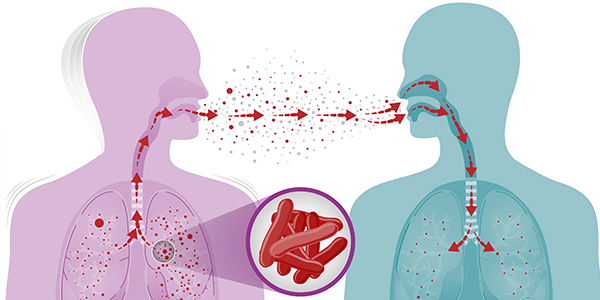The World Health Organisation (WHO) Global Tuberculosis Report 2024 has revealed that Nigeria recorded approximately 467,000 tuberculosis cases in 2023.
The report also showed that an estimated 10.8 million people developed TB in 2023, with 1.6 million people losing their lives, and 12% of the global burden affecting the most vulnerable which are the children and young adolescents
The First Lady, Oluremi Tinubu in her special remarks at the ongoing 2024 National TB Conference in Abuja, raises concerns that tuberculosis is still a leading cause of death in Nigeria as the country ranks sixth highest burden country across the world and first in Africa.
The First Lady however said, despite these challenges, she was encouraged by the progress that has been made so far as she appreciated the commitment of the Tinubu administration, civil society organizations, healthcare providers, and international partners.
The Conference themed, “Public-Private Partnership and Integrated Service Delivery: Panacea to End TB in Nigeria”, was organised by the Stop Partnership Nigeria in collaboration with the Federal Ministry of Health and Social Welfare and other partners.
She said, “Subsequently, we have seen a steady increase in the number of people diagnosed and treated for TB. However, as we celebrate our successes, we must also acknowledge that there is still much work to be done.”
“We are here today because despite the progress we have all made in the fight against the disease, the global burden of TB still remains alarming, particularly in low and middle-income countries like ours.”
“We cannot afford to be complacent, and I assure you that the Federal Government, remains fully committed to achieving the global TB targets by 2035.”
“To achieve this, we will require sustained investment, innovative strategies, and a renewed focus on breaking the barriers that prevent people from accessing the care and support that they desperately need.”
ALSO READ: Misalignment of Fiscal-Monetary policy weakens transmission of CBN’s policies —Report
Tinubu also reiterated that as the Global and National Stop TB Champion, She is committed to collective fight against TB.
“I believe that the solution to ending TB lies in the strength of our partnerships both public and private, and in the integrated delivery of services that leave no one behind.”
“I am glad that the money I donated earlier this year has been used judiciously to procure more TB diagnostics tools which will help to increase TB diagnosis and case finding.”
“This conference provides us with the platform not only to share experiences and knowledge but also to recommit ourselves to the common goal of ending TB.”
“The discussions, the partnerships, and the strategies that will emerge from this conference will serve as the foundation for the actions we must take in the coming years.”
“I am confident that, united in our efforts, we can and will end TB in Nigeria and contribute to the global fight to eradicate this devastating disease.” She said
Also speaking, the World Health Organization’s (WHO) Representative, Dr Walter Kazadi Mulombo in his goodwill, disclosed that the 2024 WHO Global TB Report identifies Nigeria as one of the 13 countries estimated to have achieved a reduction of 50% or more in number of deaths caused by TB between 2015 and 2023.
He also acknowledged the Government’s decisive action in 2024 to establish TB matching fund with the private sector, adding that this is a clear demonstration of innovative thinking and a commitment to leveraging all available resources.
“By aligning public and private sector efforts, this partnership embodies a shared vision to ensure no one is left behind in accessing TB prevention, diagnosis, and treatment services.” He said.
The Acting Board Chair of Stop TB Partnership Nigeria, Dr. Queen Ogbuji-Ladipo, noted that despite achieving a 24% decline in TB incidence rates between 2015 and 2023, Nigeria remains among the 30 high-burden countries that account for 87% of the world’s TB cases, including HIV-associated TB (TB/HIV) and drug-resistant TB (MDR/RR-TB).
She added that significant progress is still needed to meet global targets for ending TB and while Nigeria has intensified efforts to improve TB detection, treatment, and prevention, several challenges persist.
“These include a significant funding gap, low public awareness about TB, stigma and discrimination against individuals with TB, limited access to healthcare services, and weak collaboration between the public and prvate sectors in TB control.”
She disclosed that the conference will serve as a platform to share innovative ideas, exchange knowledge, and discuss effective strategies for addressing the barriers to TB care, particularly among marginalized and vulnerable populations.
“It will also emphasize the need for comprehensive, integrated service delivery models that ensure equitable access to TB prevention, diagnosis, and treatment, thus contributing to the global goal of ending TB.” She said.
READ MORE FROM: NIGERIAN TRIBUNE

